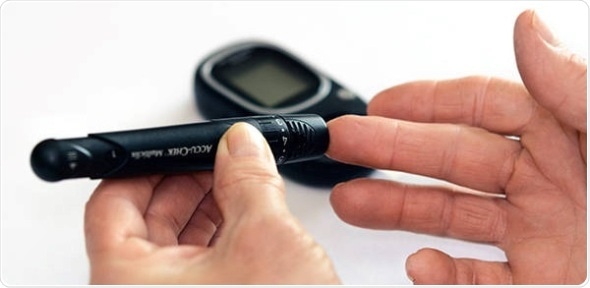Mar 25 2019
Breakthrough artificial intelligence developed in Queensland could improve insulin dosing for diabetics and transform the way aeroplane engine wear-and-tear is monitored.

University of Queensland alumnus Dr Nigel Greenwood from Evolving Machine Intelligence (EMI) developed the technology and worked with others from UQ to build real-world applications.
The team has built a world-first machine-intelligent artificial pancreas – which has made the top 10 in a global challenge for AI applications to solve some of humanity’s most pressing challenges.
“We’ve been using our machine-learning technology to data mine the medical histories of diabetics and recommend insulin dosages,” Dr Greenwood said.
“Our technology can recommend the best insulin dosage to keep each individual patient’s blood glucose levels under control with unprecedented stability and safety.
“It will allow for better and more accurate treatment than we’ve ever seen.”
Dr Greenwood called upon the expertise of UQ mechanical engineer Dr Ingo Jahn and his research team to apply the same artificial intelligence to aviation turbine engines and their related systems.
UQ Mechanical Engineer Dr Ingo Jahn said:
We’re able to use EMI’s breakthrough AI technology to predict aviation engine component degradation and plan services to improve performance.
It allows us to evolve computational models of aviation engines as if they were organisms and the AI can explain explicitly what it thinks is happening inside the engine.”
Dr Greenwood said the AI system learns by forcing mathematical models to evolve, quite literally by using simulated chromosomes, to fit known information.
A spin-off company, Turbine MachineGenes, was formed to commercialize the engine work and graduated from UQ’s ilab Germinate program, which supports startups in the early stages of development.
Dr Jahn said the project also allowed engineering interns and a PhD student to gain experience in a multi-disciplinary project with industry.
The team, known as Team MachineGenes, submitted the AI breakthrough to the IBM Watson AI XPRIZE competition and has already knocked out more than 600 teams from around the globe.
The competition will culminate with three finalists participating in the grand prize competition on the TED2020, with a prize pool of $7.1 million.
Dr Greenwood completed a Bachelor of Science (Hons) at UQ in 1989, and a PhD in Applied Mathematics in 1994.
Source: https://www.uq.edu.au/news/article/2019/03/artificial-intelligence-breakthrough-helps-diabetics-and-aviation-engines